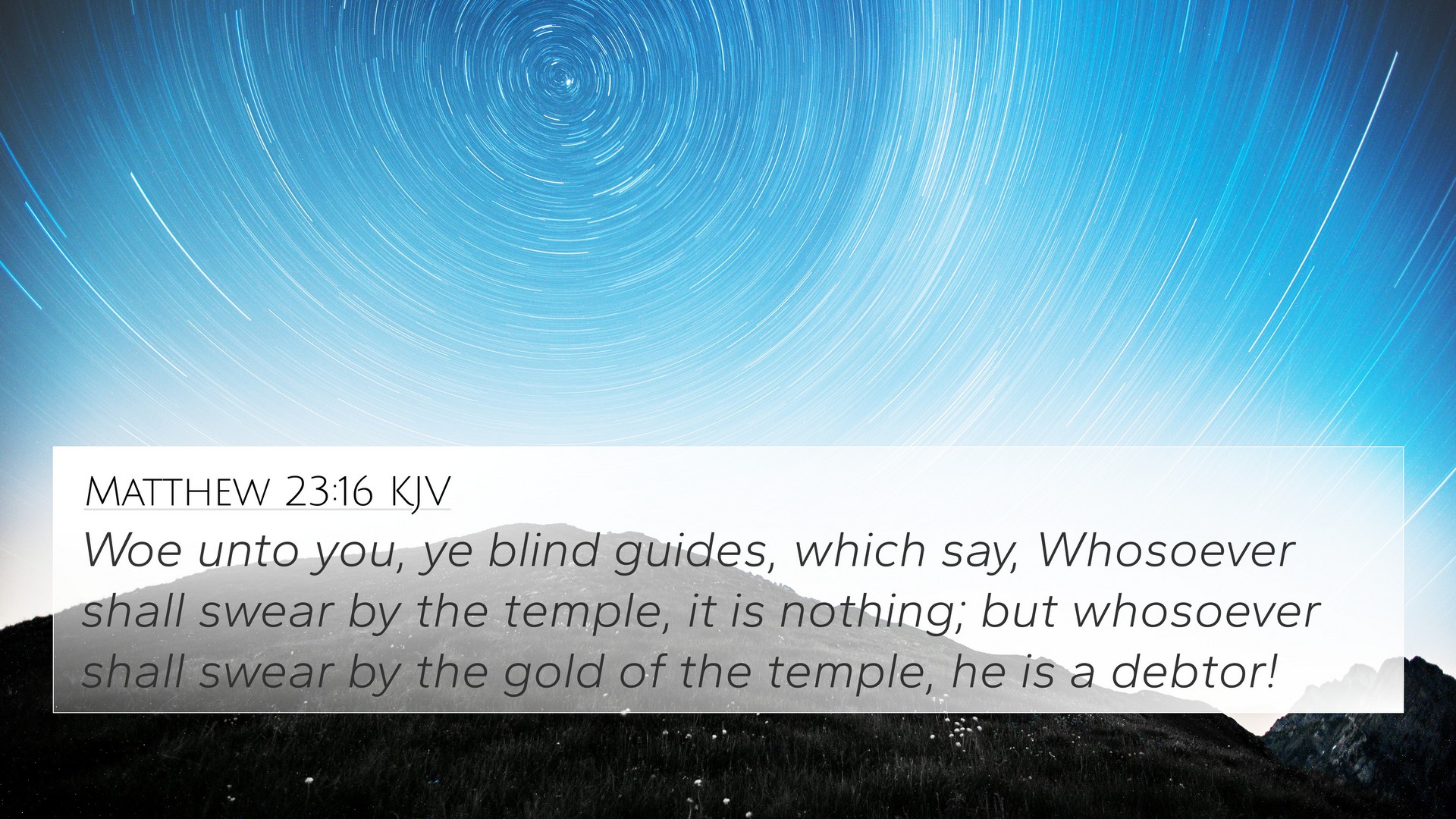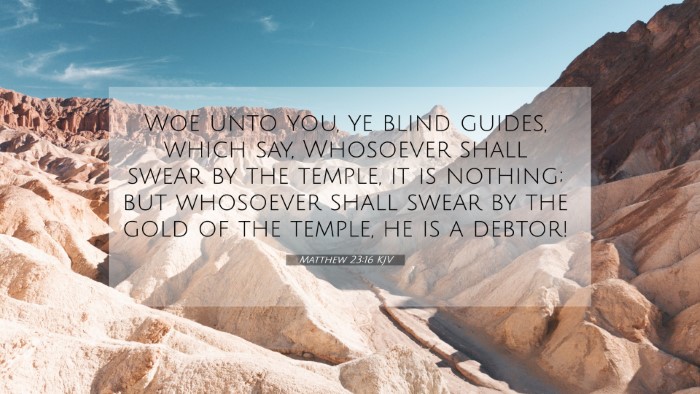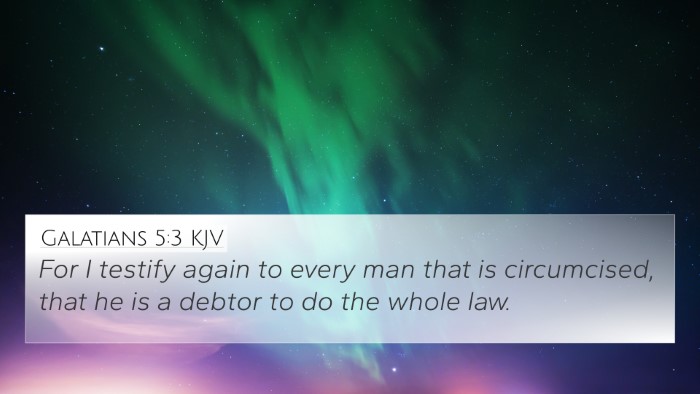Meaning of Matthew 23:16
Verse: "Woe to you, blind guides! Who say, 'Whoever swears by the temple, it is nothing; but whoever swears by the gold of the temple, he is obliged to perform it.'"
This verse captures a significant aspect of Jesus's criticism directed towards the religious leaders of His time. Here, we explore the implications of this verse through the lens of established public domain commentaries.
Context and Background
In Matthew 23, Jesus is addressing the hypocrisy of the Pharisees and teachers of the law who were focused on outward rituals and traditions, rather than the inward reality of faith and righteousness. This particular verse emphasizes the misguided priorities of these leaders.
Commentary Insights
-
Matthew Henry:
Henry explains that the Pharisees had developed a system of swearing that distinguished between different oaths based on the objects involved. This led to a trivialization of oaths, creating a false security that allowed them to evade honesty and integrity.
-
Albert Barnes:
Barnes points out that swearing by the temple showed a lack of true reverence for God. The leaders made futile distinctions that undermined the spiritual significance of their words. Their focus on material aspects, like the gold, overshadowed the sacred, indicating their blindness to true spiritual values.
-
Adam Clarke:
Clarke notes that the interchange between swearing by the temple and the gold of the temple reflects a moral blindness. He highlights that swearing by the temple appeals to God's holiness, while swearing by the gold appeals to human greed, illustrating a misplaced priority.
Theological Implications
Matthew 23:16 serves as a reminder of the need for integrity and sincerity in our commitments. It challenges believers to look beyond superficial practices and to embrace a faith that is genuine and rooted in the fear of God.
Bible Cross-References
- Matthew 5:34-36: Jesus teaches against swearing at all, emphasizing honesty in speech.
- James 5:12: Encourages believers to let their yes be yes and no be no, reiterating the importance of truthful communication.
- Exodus 20:7: Warns against taking the Lord’s name in vain and teaches the importance of sacred oaths.
- Matthew 23:12: Further addresses the pride and ambition of the religious leaders.
- Luke 16:13: Warns about serving two masters, relating to materialism over spiritual truth.
- Mark 7:6-9: Jesus calls out the worship of God with lips while hearts are far from Him.
- Isaiah 29:13: Prophetic warning about worship that is only lip service and not backed by heart devotion.
Practical Application
This verse serves as a call for introspection regarding our commitments—both verbal and non-verbal. It urges Christians to adhere to truth in their dealings and to assess what they prioritize: the material or the spiritual.
Connections Between Bible Verses
The themes highlighted in Matthew 23:16 can be seen echoed throughout scripture. This cross-referencing of verses reveals a consistent message concerning integrity in speech and the dangers of legalistic approaches to faith.
Linking Bible Scriptures
By studying these verses together, believers can grasp a fuller understanding of how integral honesty and sincerity are in one's walk with God. A comprehensive Bible cross-reference guide can enhance this study by showing deeper connections among these theological points.
Conclusion
In summary, Matthew 23:16 is a poignant reminder of the necessity for honesty in the life of a believer, underscoring that true commitment is not defined by the material but by the authentic reverence for God. Engaging in cross-referencing biblical texts enriches our understanding of such significant themes.














